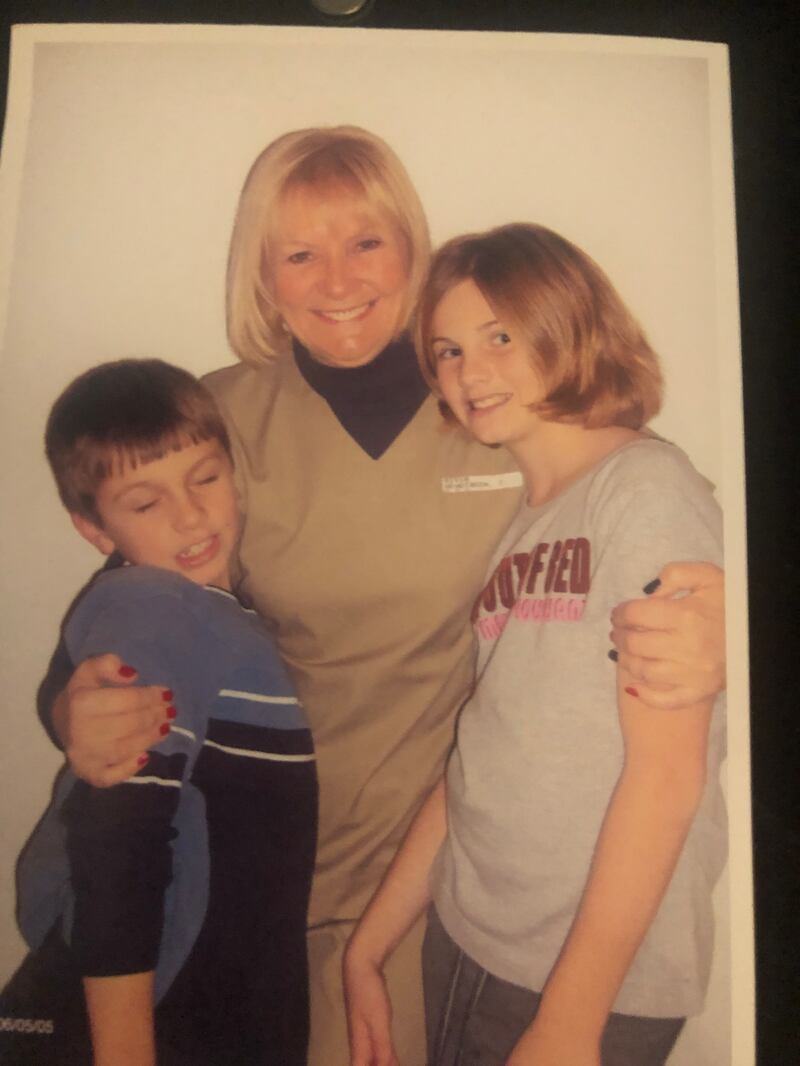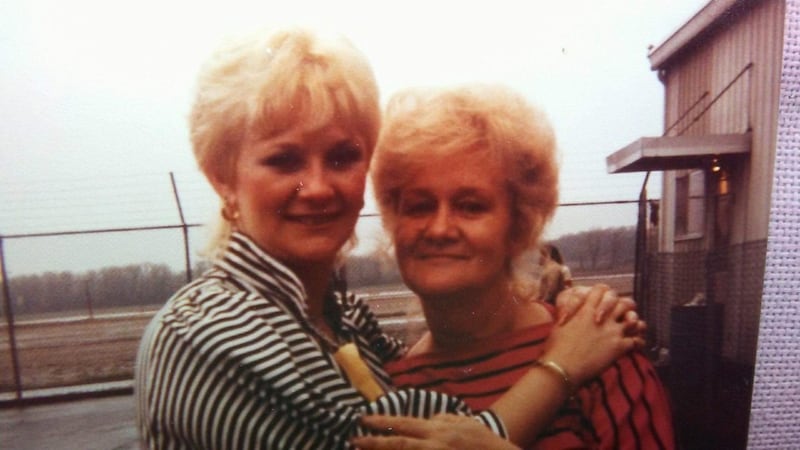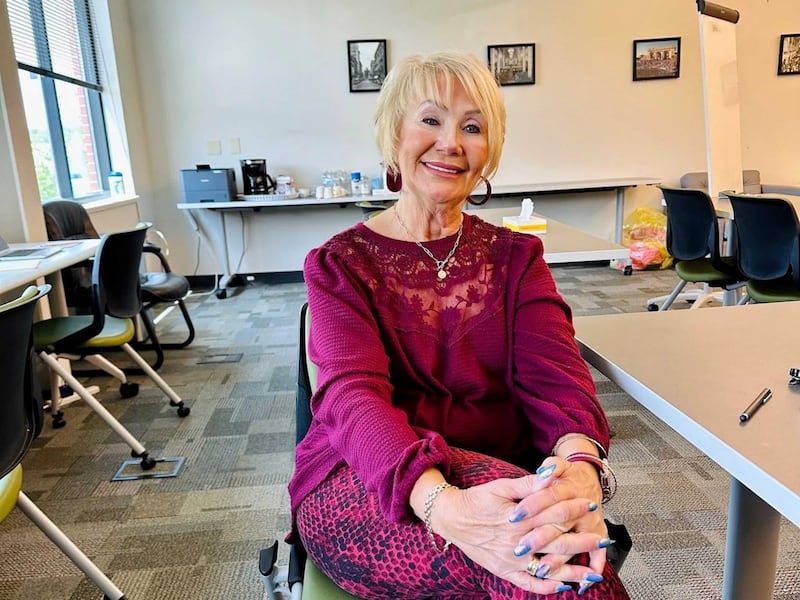With a telephone pressed to her ear, Judy Henderson taught her adolescent daughter how to cook pancakes and boil sweet potatoes, offered dating advice and provided comfort after heartbreak.
During her children’s birthdays and other significant milestones, Henderson quietly cried with her back turned toward her prison cell.
As a 32-year-old mother of two young children, Angel and Chip, Henderson was convicted of capital murder and sentenced to life in prison. She spent 36 years behind bars until a governor’s pardon set her free.
Now, she spends a piece of her freedom helping incarcerated mothers and their families.
In Springfield, Missouri, in 1982, Henderson said she was manipulated by her then-boyfriend into robbing a prominent jeweler. The robbery turned fatal when the jeweler refused to turn over his valuables. Henderson’s boyfriend fired several shots, killing the jeweler and injuring Henderson in the process.
Both were charged with murder, but only Henderson was found guilty.
In her new memoir, “When The Light Finds Us,” Henderson shares how she turned to God for strength, redemption and purpose.
“I had to understand why I was there, how I allowed this to happen to me, and how I was going to move forward and get home,” Henderson told the Deseret News. “The love I had for my children and my family, and the anger motivated me. I let that fuel me to fight for 36 years to come home to them.”

Upon her release, Henderson said the plan was to “enjoy the rest of my life with my children, my great-grandchildren and my grandchildren.”
But Henderson’s unique “insight” and “spirit” were meant to be shared. She does some of that sharing in her recently released memoir, and also through serving incarcerated women.
Now 76, Henderson works as a full-time administrative assistant at Catholic Charities — where she helps people recently released from prison rehabilitate. She also helps incarcerated mothers maintain meaningful relationships with their children from prison.
“It’s very rewarding,” Henderson says of her work. “It’s nice to go home and know that you were able to touch someone.”
Deseret News: Motherhood was a top priority for you, before, during and after your time in prison. Do any moments or visits with your children stand out?
Judy Henderson: My children and I grew up together in prison — me turning into a different kind of woman than what I was before. But the motherhood was always there, that never ceased. Even the bars could not separate us, and so we grew together.
My daughter and I became even closer than what I thought we could ever be. It didn’t put a damper between us. It didn’t put a hedge between us.
I was able to still mother them behind bars through phone calls and letters and visits.
DN: How did your time in prison impact the way you approach your family relationships today?
JH: We were always a close, tight-knit family, a very loving family.
They never turned their backs on me. They came (on) visiting days. ... We’d have food visits. We would have times when they’d come for birthdays.
It was very difficult, of course, because even at celebrations ... Christmases, Thanksgivings, they would always set a place for me. They always had a chair, and it had my picture there, and so they knew I was there no matter what, even in spirit ... at funerals, weddings, anything, there was always a seat for me.
DN: It sounds like every family member put effort in maintaining relationships with each other.
JH: It was a collective effort in doing that, because having visits is kind of bittersweet. ... Of course, you always love seeing them.
The hard part was going back to my cell, back to my world, and then (for them) going out the door to theirs. So that could always be sad, yet we never let the sadness or my situation hinder our closeness or our honesty with one another, we always had that bond.

DN: How has your faith shaped your journey — both while you were incarcerated and since your release?
JH: To be very transparent and honest with you, when I came to prison, I was very, very, very angry, because I thought, “Here is this almighty God that has the power to change anything that he wants to change, and he allowed this to happen.”
I was very angry with God, so him and I had a lot of heart to heart conversations, and I was very blunt and very honest with (him). ... Through this experience, I was able to have such a deeper, closer walk with him, once I realized I was very angry.
But I thought, “There’s two things you can do with anger, you can either get bitter or you can get better.” And I chose to get better. Doing that meant I had to put in some hard work.
When I started opening up and letting God inside and guide me and feel the peace that he gave me, I was able to see light in so many different things. I was getting blessings every time I turned around because I knew they were there. ... He gave them to me, and he walked with me.
He did not mean to have my future in prison. This was a place for me to learn what my purpose was, why he created me and it was an awesome way to find out all the different ways that I could give back to others.
DN: I know you are working as an advocate for mothers who are incarcerated. Will you tell me more about that work?
JH: We have a program that’s still ongoing there, and it’s called the PATCH program. It (stands for) parents and their children — and so they bring the children to the prison in an environment where it’s more set up like a family area and without officers in uniform in there.
The mothers, they get to play games with their children. They get to have meals with their children, and it’s just them and the child. And that was something that I was able to pilot back in 1982.
To this day, whenever I know somebody’s getting out of prison that I’m aware of, I will take the time to go speak with their family and let them know what to be prepared for.
I want the families to know that I’m here if they need me as a mediator, or to explain how an inmate is going to react whenever they come home, or some of the things that they might face that they will need, that the family may not be aware of.
DN: Is there anything you want potential readers to know about the book?
JH: I want them to know that whatever kind of a hard, bleak, deep, painful situation you may be in, you don’t have to stay there. You know it’s a choice. You may not always think that you have a choice, but we all do.
Know that God created you for a purpose, and try to find that purpose in what you’re going through. And just know that the day you were created, the day you were born, God gave you all the tools you would need for your entire life in you already — you just have to find them and figure out how to use that talent and how to use those tools to make your life the best it can be to serve others.


